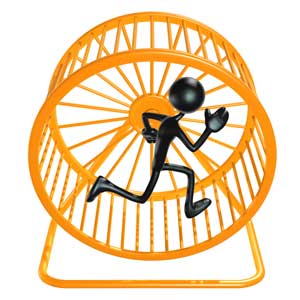Work Stress Counselling London & Burnout Counselling London

Burnout Counselling, Work Stress Counselling London Burnout is now recognised by the WHO as a medical diagnosis - a syndrome often resulting from chronic workplace stress. Burnout can be defined as the impact of what we do exceeding our physical, emotional, psychological capacity. By now we may want to heal our burnout, work stress. Burnout can be experienced as extreme exhaustion, a mental distance or negativity towards our work and decreased productivity. Inside we may not feel good enough. (Aspects of our burnout can come from unusual quarters, e.g. carrying shame, and shame often precedes burnout.) We may be very conscientious. Our work can be pressurising at times, yet no one can make us feel pressured without our permission and it can be a real challenge to take responsibility for the pressure we feel, especially for those who are highly sensitive. (Stress, fear, anxiety may be a huge driver for others.) We may struggle with balancing pressure and stress. Some of us may be experiencing compassion fatigue, others become enslaved to technology, unable to switch off our devices, allowing our work to creep in to our downtime. Keeping busy with distractions we may struggle to see the wood from the trees, say "No" or have good time management systems in place. Our productivity, creativity may have reduced, we may have developed cynicism towards our customers or employer or have become less aware of risk - putting us and others in danger. Not very self-assured, continuously worrying about work (maybe wondering if we are in the right career) may also affect our sleep, bodies (especially if we treat our body like a machine). Stress at work, ill health & burnout especially for those of us who are highly sensitive, who push ourselves through things, feel overloaded can result in "adrenal fatigue", "adrenal exhaustion" and "adrenal burnout". Some may be work obsessed, may be unable to switch off from work as a distraction from the rest of our life as if to compensate for other things, which we now be willing to address. Understanding our strengths and vulnerabilities, having kindness and self-compassion can support us, so we look after our wellbeing (and any ADHD if we need to). The work stress counselling for burnout addresses the transitions towards recovery, what our options are, the decisions we make, so we recover from burnout, heal, and live a healthier, balanced life. Our work stress or burn-out may manifest as:
- Worn out, emotional exhaustion, maybe nervousness, disorientation, overwhelming sense of hopelessness, negativity, loss of ability to achieve much
- Spiralling stress levels
- Feeling lost, stuck, in a state of inertia
- Existential concerns, including sense of meaninglessness
- Identity issues
- Impostor syndrome
- Overwhelment
- Confusion & bewilderment
- Worrying about things out of our control yet struggling to take charge of what is in our control
- Anxiety attacks, panic attacks
- Tiredness, permeating all aspects of our life
- Extreme fatigue, exhaustion, which can creep up on us without noticing
- Somatic reactions, e.g. severe aches & pains, muscle weakness, shaking, digestive upset
- Taking time off work for physical or emotional reasons, maybe depression
- Reduced productivity
- Moodiness
- Escaping into unhelpful habits or addictions
- Sleep disturbance, deprivation or oversleeping, poor time keeping
- Not looking after ourselves, e.g. appearance, exercise, diet, etc
- Not asking for help from supportive others
- Neglecting others, e.g. our partner, maybe taking it out on them
- Diminishing pride in our work
- No longer enjoying what we do
- Lost drive, motivation
- A lost sense of the bigger picture
- Lost light-heartedness, sense of humour
- Lacking empathy, joy
Stop the world, I want to get offIrving Heller

Healing, Recovering, Restoring Our Self From Burnout, Work Stress, Counselling For Self-Care - Counselling For Work-Life Balance, Burnout Counselling It may feel as if we are running on empty. For burnout - it is taking a break that is usually most healing so we can withdraw, rest (as if hibernating, like animals do), rebalance, refill our well that has become dry. Slowly phasing our recovery through tuning in and respecting our body may be important. We may have allowed work to take over our life and overlook how to improve our ways of living often through small shifts. Making time for, prioritising self-care in practical realistic ways, becoming aware of what's happening in our body, feelings, mind, taking care of, nurturing, balancing these aspects may be important. Getting back into our body (e.g. maybe through sport, gardening, baking, massage, yoga, or qi gong - see also Feeling Safe In our body - Connecting To Our Centre) may be important, as may reinvesting in what nourishes us - emotionally and physically, eating a good diet, getting enough exercise, sleep, having a life outside of work, can paradoxically enable us to work better and it can be challenging for some of to make this commitment to our personal life, as can building, maintaining, scheduling supportive habits, routines, rituals, patterns, making time for things we enjoy. Rediscovering or discovering appreciation of life's small and beautiful things, our passions, enthusiasm, may be important for us as may connecting, reconnecting with friends, family, community, alongside our own inner child. We may need to learn to play again, get out in nature again, maybe be with animals, be creative. Work-orientated, we may need to take the pressure off us, stop trying to do it all or do everything to a very high standard, working more efficiently and prioritising the most important aspects of our work, productively targeting our time and efforts. This may mean questioning what we really need to be doing, giving up doing certain things, letting go, so identifying what we need to do less of in our life and more of, may be important, as can making time for reflection, journalling. Our work impact, not input, may be important. We may want to consider delegating or negotiating changes to our current role. Changing and implementing our goals and plans may support us. Putting limits on the time we allocate to work, building breaks into our workday, knowing the times of day we are most productive, the times of day we need to be left alone and articulating this may be important. We may also want to consider leaving our work thoughts where they belong at work, clearing our mind. We may have delved into work at the cost of keeping everything else out. Career success may no longer fulfil us, especially if we have prioritised this above other things (e.g. relationships, spiritual connection). And our values, any sense of the spiritual may support us, maybe through meditation or mindfulness. Work, work, work can be all too much for us. We may want to value simplicity, having nourishing rituals that sustain us. (This may include living softer, yet empowered life.) The counselling and psychotherapy can also consider other "healthy obsessions" like our passions and interests, so it is not either our work or life which flourishes, but both - work life balance and the therapy for burnout also explores how we pace ourselves, set boundaries and blossom in our life. We may want to utilise the therapy for burnout to explore what we personally need to evolve, grow. Our work can importantly give us some structure, yet we may want to be reflective of what's actually achievable and choosing to say "No" when we need to, so we no longer sacrifice our self. We may want to get back or reconnect to our own personal structure, be in our own inner authority, explore and nurture what else really matters for us in our life, what gives our life meaning, paying attention to the qualities of our soul - maybe rediscovering our light-heartedness, playfulness, carefreeness, laughter, fun & our sense of humour, so we don't take things so seriously. The counselling for burnout can also explore any other underlying factors, any roles we may play (e.g. being driven by achievement, status, money, need for validation, recognition, approval, relationship problems, addiction to busyness, or pleasing, fixing others, maybe addicted to work). We may want to discern between what gives us energy and what drains it, manage our energy, reconnect with what's our vision in 2, 5, 10 years' time, what stirs our heart and is magical in life. We may want to support ourselves by:
- Re-storing our depleted energy, embracing rest & restoration (it can be as if our body may be still holding trauma, may not have rested, because it has been on alert all this time & needs permission to rest, so we need to find a safe place inside to rest our restlessness, feel safe in our body, centred, anchored, stable)
- Without necessarily going into the details of the burnout, to make sense of our experiences
- Ensuring our nervous system is protected from overload, stopping feeding our stress, anxiety, not getting so caught into anxiety loops, keeping our stress, anxiety in check, at a distance, reducing our stress, anxiety, including relaxation techniques, which personally work for us
- Putting our stress into perspective, being curious about its message, what it might mean
- Pausing, finding our breath & recharge
- Being in the moment
- Utilising healthy distractions
- Becoming less affected by our internal dialogue
- Being patient
- Discovering ways we no longer abandon ourselves
- Having compassion for us & others
- Connecting with supportive others
- Being assertive
- Exploring the difference between external safety and internal safety, security
- Exploring what else may be emerging in our life (see also Living To Our Full Potential)
Internet Working The internet is a rich resource and a lot of us spend much of the time in front of a computer, not only at work, but also in our leisure time. We may have become dependent on the internet more than we realise at the cost of enriching our life in other ways.

Our work can be rewarding, challenging, creative, nourishing, meaningful, fulfilling, sociable and give us a sense of purpose or a buzz at times. (For others, work can be unmotivating.) Work achievement, providing, protecting can be especially important for men. Fear of missing out on things (FOMO) can be a work driver for some. We may enjoy the competitiveness and our work can motivate us, yet the work we do is not the "be all and end all" - it is not who we are. And work obsessed (maybe hiding behind our work), we may have ended up primarily defining ourself by our work - by what we do. We may also worry about work, putting all our efforts & energy into it, becoming too dependent on it, maybe getting lost in its relentlessness, losing our self in the process. Work may have become all-consuming where we prioritise work above everything else, as if we have become a workaholic, abandon ourself. We may have put our career first, before everything else. When busy, personal things can get put to the side, and over time, adversely affect us and others around us. Buried in our work, our very self has stopped fully living in other aspects. The workaholic inside of us may be trying to achieve so much at work, that we can lose our sense of all of who we are, other than our work identity. Work can be a refuge from everything else that is happening (or not happening) for us. We may allow work to dominate everything. We may have sacrificed too much. Yet we are more than our work and keeping our work in perspective, reconnecting to who we are as a human being may now matter to us. Throwing everything into our work, as if we are on a treadmill, we may have become absent at home, socially stagnant or struggle relating. Working hard, over-committed at work, we may struggle to commit to other important things we value. Having a strong work ethic may be very important to us - something we value yet if we become a work tyrant we can be so fixated or wrapped up in our work that we are not mentally present elsewhere, living a more rounded life, with fulfilling, lasting connections with friends, family, partners, so we may love our work, but also work on our love - balancing these two ingredients, which can fulfil our life. We may now want to seek various goals important to us, other than financial or work satisfaction. Some of us may experience our work as both meaningful, enjoyable, yet hollow (which may point to what we are experiencing inside), with little joy. Inside we may have chosen not to make time for ourself, postpone our full life, as if putting it on hold for later on. Investing in our life as a whole, not just our work or business, may be challenging.
Work is work. Life is of more importance.

Unreasonable Expectations, Unrealistic Workloads Work stress can affect us all, especially when we are continuously trying to meet onerous, unnegotiated targets, where we feel unsupported by our manager or employer more than we realise. (We may be affected if the work culture does not value the human being, a colleague, happiness, kindness, rather than an employee) Sometimes we (or our employers) may have unreasonable expectations (including what it means to be conscientious). For many of us, the volume of work we have may never be completed. We may also want to review our personal expectations. We may have an unrealistically high workload & receive minimal support. We may be expected to be available, and on-call whenever contacted. We may persuade ourself that once we complete the task, we can then take it easy. Things always seem to take longer than we have imagined, and other tasks are queueing up behind. Our work activities never seem to end. We may also be overwhelmed with a list of so many things to do, believing we have to do it all ourselves. Things may be racing around in our head and we may feel like a coiled spring at work. We may struggle to accept that we can't complete everything, which can create our own work stress as we work more, work late, work harder and we may seek work-related stress counselling. Work can often seem like a bottomless pit as our "to do list" never shrinks. Our work-life balance has become out of kilter, and we can become addicted to work. We can become increasingly miserable. We may be in a work crisis situation. This can affect our relationships, physical health, emotional wellbeing & psychological health. Keeping busy may also be a means of distraction, so we don't have to come up against our anxiety, despair or other uncomfortable emotions.
Choose a job you love, and you will never have to work a day in your life.Confucius
Work Ambition Being ambitious at work can be our driving force, yet may have suppressed our sexual desires, enabling us to progress, be creative & move up the ladder. Yet if we become overly ambitious at work, it can end up controlling or ruining our life. We may have become obsessed with work, envious of others' achievements, progression. Career driven, we can become hooked on our work, or need to succeed - always giving more. For others, our ambition may point us towards meaning. Counselling for work obsession can help us explore our intrinsic worth & enquiring whether we want to structure our self around our work or vice versa. We may want to utilise the work-related stress counselling.
Successful People Overly focused on work, striving to be successful, there can be a cost to our achievements. Self-employed people, or those running their own company or business (especially if it is "our own little baby"), are particularly at risk of work stress, burnout, as may others, who work on their own. Work-related stress counselling can be supportive. People who travel much or work from home may have their own challenges, as the boundaries between work & life can become blurred. The challenges of balancing our work & the rest of our life touches many of us, including well educated, successful, creative, financially stable people at the top of their professions. So busy in our "doing", we may be out of touch with our "being". Our work status, fame, money, power may no longer be enough, even if we are admired. Our measures of success, may no longer work if they are not aligned with our intrinsic worth. Insecure, our esteem may be solely based on our work identity or achievements, which can give us a professional self-esteem, yet this may no longer be enough for us. We can be so strongly wrapped up in our work, that who we actually are, not so much our "doing" - more our "being" can be overlooked. We may feel empty or lonely inside, have a sense of despair, unreality, not being who we really are, or truly present. We may have lost our focus, humility or real self along the way. Alongside our work addiction, we may have turned to other unhelpful habits or addictions. Counselling for work obsession can be a place to explore how to reduce this, manage work obsession.
Success has ruined many a man.Benjamin Franklin
The Cost & Price We May Pay Some of us may work on our own, others enjoy the buzz, camaraderie, tireless striving and competitiveness, sense of accomplishment, recognition and status, which can be fulfilling and bring rewards, as can being at the creative cutting edge. Yet in our intensity of work and task-orientated, we may become obsessed with achievement, status, recognition, reward at the cost of our happiness, living more softly, yet powerfully. Achievement driven, as we expend great energy & time in our work (even feel guilty if we take a break), we may have a sense of something missing in our life. And there may be further costs to us and others:
- Working harder, achieving more, may no longer be enough to fill our void
- We may experience alienation or disconnection inside of us
- We may be stuck in doing - lost our being
- Even when we've achieved what we wanted, we may still experience emptiness inside, living our life devoid of meaning, deep fulfillment
- We may have allowed our work to define who we are, have a crisis of identity, asking "What other role would I have, other than my work?", as if our sense of worth is solely based on our productivity or the work we do. We may have lost our sense of who we are, what really matters to us, what we value beyond earning more money.
- A part of us may yearn for space, yet another part may be fearful of this
- Hijacking other areas of our life, we may delay gratification, put work ahead of having fun, as if we will get to the destination one day
- Getting all our satisfaction only from our work, we may have ignored other aspects of our personality - our body, feelings, mind, sexuality, spirituality
- We may find little time for self-nurturing (as if our self has been forgotten, overlooked or neglected)
- We can block things out, shut down things inside
- Bypassing our feelings
- Abandoning us, avoiding taking responsibility for our feelings, fleeing from them. Inside we may feel sad, empty, lonely
- We may become stuck in our head or depressed
- Constantly having goals at work can be exhausting, with no time off to properly relax & unwind, we may find it difficult to switch off
- We may be restless inside, yet not know why, as if something is missing. Existential concerns may also arise as can the need to live to our full potential.
- Our behaviour may have become machine-like or obsessive, e.g. constantly checking emails, messages, texts, etc
- We may have become emotionally and physically drained, irritated, grumbling to those around us
- We may have patterns of crashing, exhaustion, illness, after putting so much effort in
- Our other personal needs - how we look after us & others, may have been overlooked
- We may take on a lot of responsibility at work, yet overlook our responsibilities outside of work
- We may procrastinate in our personal life and have become lost
- We may also neglect other passions, interests, leisure & pleasure, our joy, vitality, physical wellbeing, emotional wellbeing, time for personal reflection, sense of community or spiritual growth, whatever that means for us
- Our general wellbeing and those close to us may have been overlooked
A Zen student asked how long it would take to gain enlightenment if they joined the temple.Unknown
"Ten years" said the Zen master.
"Well, how about if I work really heard and double my effort?"
"Twenty years"

Overworking, Work Intensity - Effect On Relationships We may enjoy work and thrive on pressure, speed & deadlines, love our work, yet struggle with love in relationships. For some however, it can be as if we are "married to our work". Do we work to live or live for work so we have everything done before relaxing? Having little time for anything else other than work will affect our relationship or marriage. And we may deny the effect of workaholism with others. We may be so committed to work, sucked into the intensity of our work, we are not committed in our relationship. We can feel alive & empowered at work, yet disempowered outside work. We may for example work hard, trying to provide so we can make our partner happy, yet it doesn't always help. Some of us may have a work addiction (this can be especially true of men), be so hooked on making money that meaningful contact with others may be the price. Internalising things, we may usually be too busy to respond & connect with others around us, our partner, children, meaningful friendships. We may struggle with intimacy or being vulnerable. Our dedication to work can replace intimacy in relationships, friendships, and human interactions. If we are in a relationship, our partner may feel increasingly estranged from us. Others may use work to avoid relationships (see also Insecure Attachment - Avoidant Style Of Attachment/Relating (Becomes Dismissing Style Of Relating As An Adult)). Obsessed with work, counselling for work obsession can explore how we can live a more balanced life.
Unmotivated At Work Some of us may be bored or unmotivated, unfulfilled or unsatisfied or dread going into work - that Monday morning feeling, which can affect our moods & relationships with others. We may be out of touch with what inspires us. Alienated, we may be spending so much of our energy & time at work, that we have become resentful of the costs to us and others. The counselling can explore these effects and options, alongside our attitude and how we use our time when working. When our work turns into a chore, we are not able to enjoy what we do. Recognising the value of what we do, finding something interesting, even in the most mundane, ordinary and routine task generates enthusiasm. And enthusiasm makes our work feel more joyful, helping us do thing wholeheartedly, enjoying what we do. It may not be possible to immediately change our work yet following our passion may lead us there even if some of this may initially be unpaid.
Other Work Problems Counselling & psychotherapy can also offer help with other work-related issues. These may include lone-working, work motivation, doing unfulfilling work, redundancy or retirement concerns, moving towards the work we love.
We can't pour from an empty cup.Unknown
Work-Life Balance, Workaholism, Addicted To Work & Work Addiction

Obsession With Work Counselling - Overworking & "Addiction" To Work The narrative that we tell ourself, vows we made a long time ago (maybe inherited from our parents), may affect our attitude towards our work now. In a competitive world, fully committed to work, some of us can only take our gratification from work or be so busy earning money, climbing up the career ladder, or indeed having made it to the top, that we overlook other important aspects, a softer, yet powerful way of living. Struggling to divert our energies elsewhere, we may have a constant urge to work, may be feeling guilty if we don't. We may constantly worry about work, finding it hard to switch off, as if we are on "auto-pilot". Binging on work, we may have few resources left to do other things, even think about other things. Our strong work ethic can for some indicate a struggle to slow down and relax. Others may try to please so much, taking on all tasks, doing anything to avoid difficult conversations, that we become overburdened at work. Martyr-like, we may have a subtle or harsh taskmaster inside of us, that is so work driven we don't know how to stop and somehow feel trapped. Keeping our head down at work, we may forget to hold our head high outside of work, as if we are burying our head in the sand. Managing our time for things that matter may be important for us. Some of us may use our work in ingrained ways to cover up other parts of our life - possible uncomfortable dilemmas, thoughts, emotions, etc. or a part of our history we want to forget. Lost without our work identity, or thinking about work, we may be lonely, alone inside, filling up our sense of emptiness by overworking. It can be as if we are addicted to work.
Stop measuring days by degree of productivity and start experiencing them by degree of presence.Alan Watts
Work Obsession Counselling - Control & Perfectionism A need for perfection & being over-demanding of ourselves can affect our work-life balance, as we strive to prove things, get things right. This affects our esteem. We can set up work scenarios, making us indispensable, or believe we are. Pushing us or others, we may struggle to have a standard which is simply good enough. We may never be quite satisfied, as if we have an impatient taskmaster inside of us, nagging us to move on to the next work challenge, without taking time out or enjoying what we accomplished. Binge working, it may seem as if we are on an endless conveyor belt of productivity (which frequently decreases when stressed), yet may feel empty inside, so we fill our emptiness up with more work. Yet in some aspects we may be out of control, so our need to be in control may come out through our need to work so hard or long hours. We may continuously be pushing to achieve more, instead of doing well, enjoying the journey along the way. The workaholic in us will always prioritise work over & above everything else, affecting us & others around us. "How can I sometimes ask for help?", "How can I take control, prioritise me over work?" - may be questions we ask. We may want to utilise the therapy for work obsession.
Work Obsession Counselling - Work-Life Balance Work-life balance - leading a full life other than our work, can be an easy concept, yet challenging to achieve. Some of us may over-commit ourselves at work or become overburdened with responsibilities. (For some of us prioritising and focusing our work, finding different ways to wisely manage our time, respond to interruptions, distractions may be important.) There is always work to do, and usually too much. In a habit of working long hours, we may as well continue - we know nothing else. We may tell ourselves or others that we really must stop working so hard, yet never get round to it. We may believe working less or asking for help is a sign of weakness. Some may believe we have a work-life balance, yet in reality we binge work until we drop or collapse. It is only then we take a rest. With our workaholic tendencies, we may need help knowing and setting our limits, and finding a balance between work and our non-working life, so our professional crisis does not spill over into our personal life. We may struggle to make time for pleasurable tasks or take breaks, and it is only after we take time to enjoy life, relax & rest that we are refreshed. Our quality of work and attitude to work usually improves. Counselling & psychotherapy can help with our own work-life balance problems & "workaholism".
Work Life Integration, Worried We Are Workaholic, Work Addiction
Reasons For Our Work Addiction The work we do may pay us well, be meaningful. Our work can give us a sense of accomplishment, achievement, yet it is not who we are, our being - it's what we do. We are all so different that each has their own reasons for being addicted to work. Common themes may include: emptiness inside, fear of aloneness, abandonment, rejection, needing others to validate, approve, admire us. Self critical and judging ourself inside we can become addicted to work to release our tension, using work to release it. We may be overly focused on our work and the job we do. We may also want to embrace our full self - all of who we are and to define our self-worth, internally, instead of externally. Thomas Merton - An American monk - points out that we can spend our whole life climbing ladders of success, only to find, when we get to the top, that our ladder is leaning against the wrong wall. (See also Difference Between Professional Confidence & Personal Confidence)
Counselling For Workaholism, Work Obsession - Being Driven Sometimes (especially if we are a high achiever) we can be a "work addict" alone, and other times we can be a part of a group of "work addicts", refusing to acknowledge the problem. Some of us can be obsessive - almost addicted to getting things done, achieving things (see also Work Obsession Counselling - Control & Perfectionism). Some may feel insecure inside, fear of poverty, failure can drive us, as we focus more and more on our work. Yet unfulfilled inside, being work-driven, can at a superficial level keep us safe from any uncomfortable feelings, some of which may go back years (see also Relationship Style, Attachment Patterns), as we have learnt to shut them down. So work focused at times, we can be good at thinking things yet not feeling things - using work to numb our emotions, our pain, or loneliness. We may be a success at work, yet long for inner peace, a successful relationship & sense of joy. We may constantly think or even dream about work, being so work driven, "married to work" or indeed addicted to work, that we overlook who is driving - ourself. It can be hard to listen to our intuition, find a space for us, take some downtime, time to learn about ourselves, be connected to our purpose, live life to our full potential. Our work may be the place we get our sense of identity, community, meaning, purpose from and can bring out our qualities of discipline and determination. Our work (or work desk) may become like our altar and sole connection, yet inside we may be missing a soulful connection, because we are so busy doing our work, we miss our being. Counselling for overworking can be a space to address our overworking concerns, what's behind our need to work so hard (e.g. need for validation, success, money, or is it because we want to do our best, make a meaningful impact, feel a sense of accomplishment). The therapy may also explore identifying, disidentifying & integrating all aspects of us, not just our "work identity", connecting to what's magical in our life, what stirs our heart.
FAQs about work stress counselling, burnout counselling, the workaholism & work addiction Counselling London practice based in Kings Cross, Camden:
- What is burnout counselling, counselling for burnout or therapy for burnout in London?
- How effective is work stress counselling in london?
- Is counselling for burnout effective?
- Is burnout therapy available in London?
- What is the frequency of workaholism & work addiction counselling in London, Kings Cross?
- How many workaholism & work addiction counselling in London sessions do I need?
- How much does workaholism & work addiction counselling London cost?
- Must I visit your London counselling practice in Camden or do you offer Skype counselling, online counselling or Telephone counselling?
- What are the advantages and disadvantages of offering online counselling, Skype counselling or in-person counselling in London, Camden, Kings Cross?
- Do you only offer workaholism & work addiction counselling in London, Camden or Kings Cross?
- What times do you offer workaholism & work addiction counselling in London, Kings Cross or Camden?
- How do I contact a counsellor in London, Camden, or near Kings Cross?
- How effective is workaholism & work addiction counselling in London, Kings Cross, Camden?
- What can I expect from the initial session of counselling London?
- What to expect from the other workaholism & work addiction counselling London sessions?
- What is the typical duration of the London counselling services in Camden, Kings Cross?
- How effective is burnout treatment, burnout counselling in London?
- Does burnout treatment therapy, work stress treatment work?
- How many sessions could I expect for work stress counselling in London?
- What is work obsession counselling in London?
- How effective is work obsession counselling in london?
- What is the frequency of work obsession counselling in London, Kings Cross?
- How many work obsession counselling in London sessions do I need?
- How much does work obsession counselling London cost?
- Do you only offer work obsession counselling in London, Camden or Kings Cross?
- What times do you offer work obsession counselling in London, Kings Cross or Camden?
- How do I contact a work obsession counsellor in London, Camden, or near Kings Cross?
- How effective is work obsession counselling in London, Kings Cross, Camden?
- What to expect from the other work obsession counselling London sessions?
- How many sessions could I expect for work obsession counselling in London?
